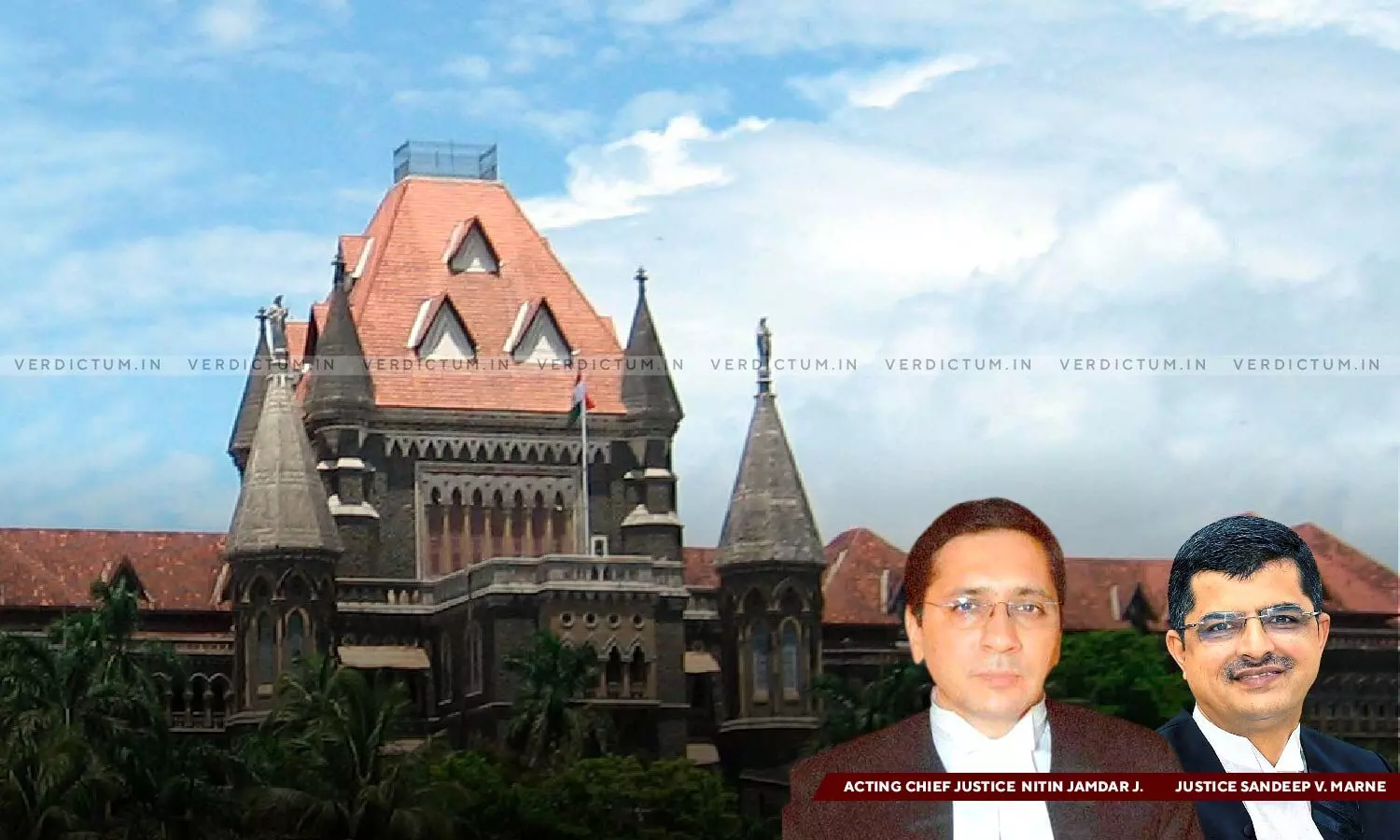
When Referral Memo Is Not Obtained, Central Govt Pensioner Is Entitled To Reimbursement Of Medical Expenses Only As Per CGHS Rates: Bombay HC
 |
|While finding that the Petitioner has been paid the entire amount towards medical treatment albeit at CGHS rates, whether the case involved an emergency or not, the Bombay High Court declared that the factual controversy regarding the situation under which the Petitioner’s husband was admitted into Ruby Hall Clinic becomes academic.
The Court observed, "...no fault can be found in the action of the Respondents who have taken sympathetic view of the matter and have reimbursed the entire costs of medical treatment (at CGHS rates) by ignoring the fact that Referral Memo was not obtained from CGHS Wellness Centre and Petitioner’s husband was not admitted in emergency situation."
A Division Bench of Acting Chief Justice Nitin Jamdar and Justice Sandeep V. Marne observed that “even if it is to be assumed that admission of Petitioner’s husband was an emergency case, the only amount to which Petitioner would be entitled to, is as per CGHS rates. In short, expenditure for the entire treatment availed at Ruby Hall Clinic by Petitioner’s husband is reimbursed, albeit at CGHS rates”.
The Bench further added that no rule or administrative instruction is placed on record by Petitioner to show that any amount over and above CGHS rates can be reimbursed.
Advocate Annie Nadar appeared for the Petitioner, whereas Advocate A.D Shetty appeared for the Respondent.
The brief facts of the case were that the Petitioner is the spouse of a Central Government pensioner, who retired from service in the year 2001 and who was enrolled as a beneficiary of the Central Government Health Scheme (CGHS). Petitioner’s husband was suffering from chronic kidney disorder and due to acute pain in the urinary bladder, he was admitted to Ruby Hall Clinic, which is a CGHS-empaneled hospital. After taking treatment for about 17 days, he was discharged. Later, he was again admitted and was kept in the Intensive Care Unit (ICU) of the hospital. Although he did not claim any reimbursement for expenses incurred for these two hospitalizations but took benefit of the Medi-claim policy. Ultimately, he was diagnosed with urinary bladder cancer and passed away due to multiple organ failure. Accordingly, the petitioner claimed medical reimbursement claim from the Additional Director, CGHS, Pune. However, as against the total expenditure of Rs.13,47,879/-, an amount of Rs.9,68,893/- came to be sanctioned and reimbursed to the Petitioner. The application filed by the Petitioner before Central Administrative Tribunal, Mumbai claiming the balance amount was dismissed. Hence, the petitioner approached the High Court seeking reimbursement of the balance amount of medical expenses.
After considering the submission, the Bench observed that the Tribunal being the Court of first instance, has determined the factual controversy and recorded its finding, and therefore, while exercising the power of superintendence over the decision of the Tribunal, the High Courts are not expected to sit in appeal over finding of fact recorded by the Tribunal.
“The Tribunal has proceeded to accept the contents of a specific email sent by the hospital certifying that the admission of the patient was not in an emergency situation. The said email was addressed by the hospital to the Respondents in the light of specific query relating to reimbursement of medical expenses”, added the Bench.
Thus, the Bench clarified that the term ‘emergency’ within the context of reimbursement of medical expenses was required to be certified by the hospital and has been so certified by way of Email dated 25 July 2017, and as against this, the Certificate dated 17 May 2016 is in a standard format and is not issued in the context of reimbursement of medical expenses.
Though the factual dispute about the nature of the patient’s admission was a serious matter of debate before the Tribunal, the Bench explained that the said issue has become academic in the light of the fact that Petitioner has been reimbursed the entire costs of the treatment as per CGHS rates.
Therefore, the High Court concluded that no fault can be found in the action of the Respondents who have taken a sympathetic view of the matter and have reimbursed the entire costs of medical treatment (at CGHS rates) by ignoring the fact that the Referral Memo was not obtained from CGHS Wellness Centre and Petitioner’s husband was not admitted in an emergency situation.
Cause Title: Bina Saxena v. Union of India and Ors.
Click here to read/download the Judgment